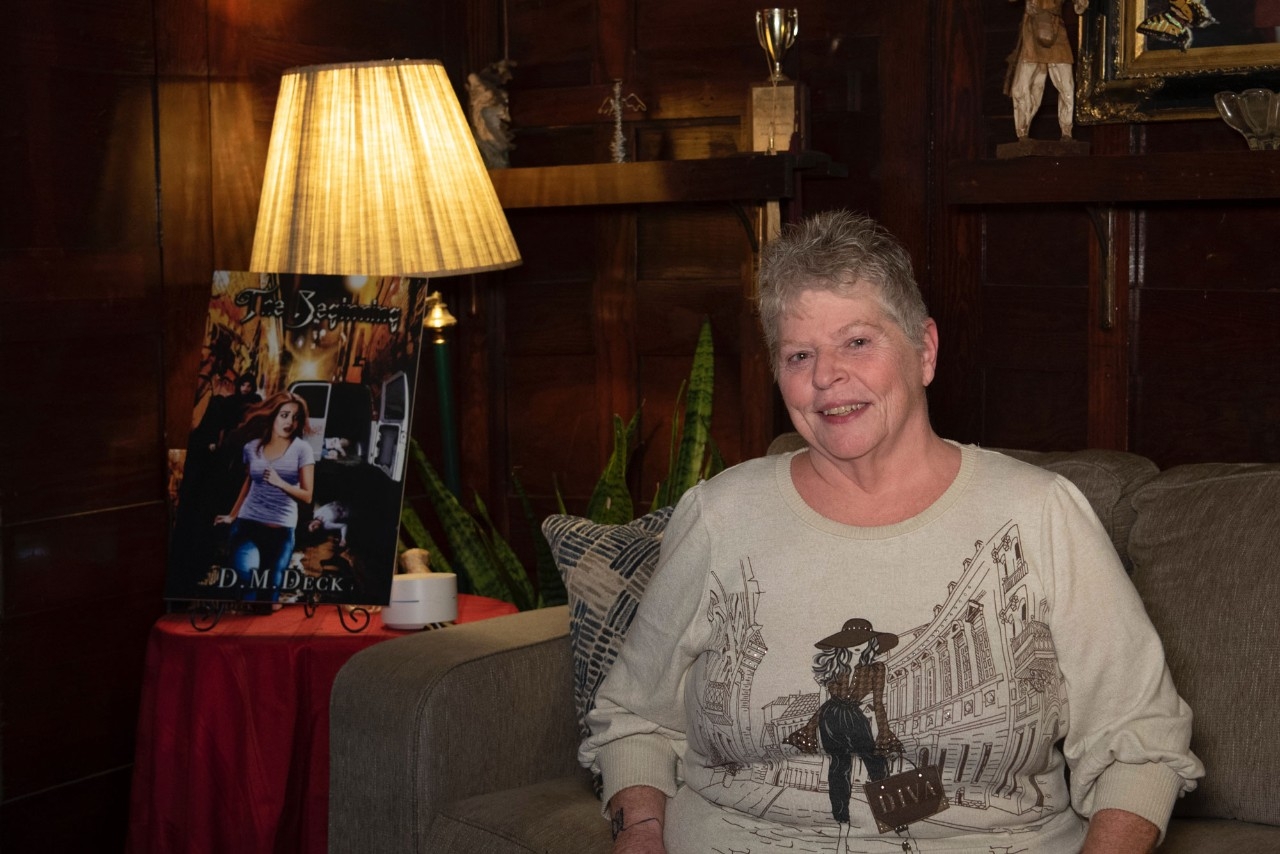Donna Deck has worked in a variety of different professions throughout her life. She ran pet shops, sold furniture, worked for Senior Services in northern Kentucky, worked in hospice and was an EMT.
Deck, who graduated with a degree in social work in 1997 and continued her education by pursuing her master’s degree in 1999, has recently added a new profession to her list: writer. After being diagnosed with arthritis, Deck retired and began writing books. While Deck doesn’t have a background in writing, she has a creative mind and knows a lot about her hometown, Latonia, Kentucky.
Deck’s newly published novel, “The Beginning” is set in Latonia in the 1970s and centers on a 17-year-old girl who witnesses an extreme crime that leads to a roller coaster of events.
“The story is thrilling, thought-provoking and makes you question everything,” Deck says. “One of my biggest motives for writing ‘The Beginning’ was the idea that one of my great-great-grandchildren might bring the book to show-and-tell one day years into the future. It’s a piece of me that will continue on.”
We sat down with Deck to learn more about her creative process.
AB: What kind of research did you do for “The Beginning,” and how long do you spend researching before writing?
DD: Though I do normally research aspects of my books, in this case the research for most of the book was simply my childhood. The area, the family and friends all existed but with different names. I did look up actual city names along the route and Googled many questions regarding anything from architecture to dinosaurs. Other books I have written required a great deal of research, but this was like writing my teenage years. Also, I tend to research as I write. If, say, she admired the flowers in someone's garden, I research types of plants, if they are in sun or shade, etc.
AB: What did you edit out of this book?
DD: I only edited conversations out and replaced them with others.
AB: How long did it take you to write “The Beginning” from start to finish? Do you write in small bursts or longer sessions?
DD: It took me about three months to write “The Beginning.” I have written in both styles previously, short spurts and long sessions, but in the case of “The Beginning,” it was definitely long sessions. I was driven when I wrote this book. It poured out of me like an uncontrollable obsession. I wrote two or three chapters per day and rewrote earlier ones.
AB: What was your hardest scene to write?
DD: When the main characters actually found out what was going on. The scene required a great deal of detail, but that detail needed to be explained without boring my readers. The whole story turned on that scene.
AB: In your opinion, what is the most difficult thing about writing characters?
DD: Giving my characters a diverse background. I don't want everyone so similar. And creating unique personality traits—things that all of us have. Secrets, prejudices, fears. Things that drive us.
AB: How many hours a day do you write?
DD: How many hours a day do I physically write? Not many. How many do I create? About two a day. I have a strange way of writing. I daydream the story at quiet times in my day. I create my story and make adjustments in my head until I have the whole story fleshed out, and then I write it. It plays almost like a movie in my mind.
AB: How do you select the names of your characters?
DD: The names are the hardest part. I borrow first names from people I know. That way, I can visualize that character better.
AB: What is the most difficult part of your artistic process?
DD: The most difficult part of the process for “The Beginning” was finally making the decision to publish. Convincing myself that the cost was worth it and that it was a good enough book.
AB: Talk to me about how your background as a social worker plays into your characters and your writing process.
DD: My background as a social worker plays a lot into my characters. Understanding psychology and the way that people work plays into the phobias and desires of my characters. My background in social work was with mentally ill individuals. It's remarkable the thin line between a quirk and a mental illness. Someone can step over the line so easily.
AB: How many unpublished and half-finished books do you have?
DD: Two unpublished and two unfinished. One of the unpublished is the sequel to “The Beginning.”
AB: What’s next for you—another book? Short stories?
DD: If my book does fairly well. I intend to publish the sequel, “A New Beginning.”








